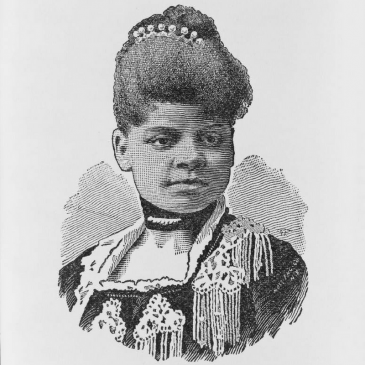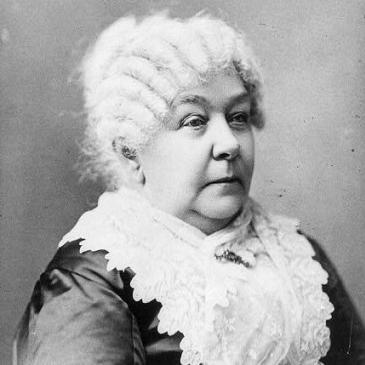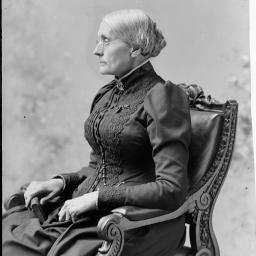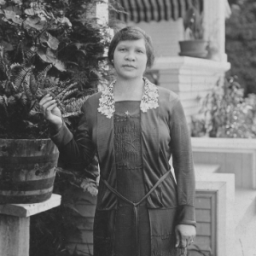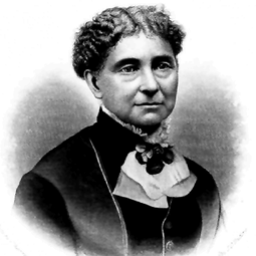Mabel Ping Hua Lee

Lee rode in the honor guard on horseback during the 1912 New York City women’s suffrage parade.
During the Progressive Era, Lee advocated for women’s voting rights even though discriminatory laws like the Chinese Exclusion Act barred her from voting, exposing systemic inequities in U.S. democracy.
Lee earned the first Ph.D. in economics awarded to a Chinese woman in the United States and later led a Baptist mission in New York City, where she promoted education and civic engagement within the Chinese American community.
“For no nation can ever make real and lasting progress in civilization unless its women are following close to its men, if not actually abreast with them,”
Dr. Lee during “China’s Submerge Hall” at a Women’s Political Union suffrage shop in New York City, 1915
Early Life
Lee was born on October 7, 1897, in Guangzhou (Canton City), China. Her father, Dr. Lee Towe, a Baptist missionary pastor, moved to the United States when Lee was roughly five years old to pursue Baptist-missionary work (Cahil; Teachers College). Lee remained in China with her mother and grandmother, where she studied Chinese classics, learned from Baptist teachers, absorbed American ideas, and practiced English at a missionary school (The Asian American Education Project). Such access to education was rare for Chinese girls at the time. Her intellectual prowess soon became evident. At nine years old, she earned the prestigious Boxer Indemnity Scholarship, a program the United States created by redirecting reparations from the Boxer Rebellion to fund Chinese students’ education abroad (Cahil).
The Boxer Indemnity Scholarship, which ended in 1937, aimed to strengthen U.S.–China relations and cultivate a generation of Chinese intellectuals who could modernize their homeland and serve as cultural bridges. For Lee, this opportunity opened doors to elite schooling and Western liberal arts. When she moved to New York in 1905, she enrolled at Erasmus Hall Academy, one of the city’s oldest schools, where she excelled in Latin and mathematics, subjects few women mastered at the time (Cahil). This dual foundation of Eastern philosophy and Western education later shaped her advocacy for women’s rights and her scholarly work on China’s economic history.
Activism and the Suffrage Movement
Lee’s activism gained momentum during her teenage years and culminated in her participation in the historic New York City suffrage parade on May 4, 1912. At just sixteen, she was seen riding in the honor guard on horseback, a striking image that was regarded as a symbol of both the promise of gender equality and the challenges faced by women of color within the movement (Cahil). Organized by the Women’s Political Union, the parade drew nearly 10,000 participants and marked a turning point in public visibility for the suffrage cause. Lee’s presence alongside prominent white suffragists challenged stereotypes of Asian women as passive and underscored the racial complexities within the movement.

Figure 1. Women on horseback at the “Suffragette parade” in NYC, on May 4, 1912, taken by Bain News Service. Courtesy of the Library of Congress.
Newspapers like the New York Tribune hailed her as “the symbol of a new era, when all women will be free and unhampered,” yet coverage often exoticized her identity, framing her as a novelty rather than an equal participant (Women & the American Story). This tension mirrored broader dynamics within the suffrage movement, where women of color, including Black leaders like Ida B. Wells, faced minoritization even as they fought for universal enfranchisement.

Figure 2. The New York Tribune features Lee in an article on April 13, 1912. Courtesy of the Library of Congress.
Although Lee’s activism was highly visible, systemic barriers limited her own political rights. The Chinese Exclusion Act of 1882 barred Chinese immigrants from citizenship, meaning that even after the 19th Amendment passed in 1920, Lee and many other women of color remained disenfranchised. This contradiction highlighted the racial inequities embedded in American democracy and the intersectional nature of Lee’s struggle. Undeterred, she continued to champion women’s suffrage through writing and public speaking. In 1914, she published “The Meaning of Woman Suffrage”, arguing that political enfranchisement was essential for women’s advancement. Later, she delivered her lecture “The Submerged Half” at the Women’s Political Union’s Suffrage Shop, urging Chinese women to pursue education and civic engagement as pathways to empowerment.
Education and Intellectual Achievements
Lee’s academic trajectory reflected both exceptional intellect and determination. At sixteen, she entered Barnard College, the women’s college affiliated with Columbia University, where she majored in history and philosophy and joined the Chinese Students’ Association, continuing her advocacy for gender equality (Barnard College). After earning her undergraduate degree, she pursued a master’s in educational administration at Columbia Teachers College before enrolling in Columbia’s doctoral program in economics. There, she studied under leading economists such as Edwin R. A. Seligman, whose work shaped Progressive Era debates on taxation, labor, and industrialization (Cahil).
In 1921, Lee completed her Ph.D., becoming the first Chinese woman in the United States to earn a doctorate in economics at Columbia University. That same year, she published her dissertation as The Economic History of China, a groundbreaking study that challenged Western narratives portraying China as economically stagnant. Drawing on historical data and comparative analysis, Lee argued that China’s economic structures were adaptive and complex, offering insights into modernization without wholesale Westernization. This perspective countered orientalist assumptions and positioned China as an active participant in global economic history. For a woman to produce such scholarship at a time when few women, let alone Asian women, earned doctorates was extraordinary, signaling both intellectual rigor and resilience against systemic barriers in academia.
Barriers to Citizenship and Voting
Lee continued her advocacy work despite the irony of fighting for a right the law denied her because of her ethnicity. She persisted because, as she believed, “women’s suffrage in America embodied the egalitarian ideals she valued,” (History). Through her efforts, she also sought to uplift Chinese Americans born in the United States through her advocacy efforts and public speaking. Although Congress repealed the Exclusion Act in 1943, decades of exclusion had already shaped the political landscape for Chinese Americans. Whether Lee ever obtained citizenship or voted before her death in 1966 remains unclear (Alice Paul Center). These realities reveal that legal triumphs often mask deeper structural inequities and that the struggle for equality extends far beyond the passage of constitutional amendments, which historically prioritized White Americans.
Community Leadership and Later Life
After her father’s death in 1924, Lee redirected her energies toward community service and assumed leadership of the First Chinese Baptist Church in New York City (Cahil). Recognizing the social and economic challenges facing Chinatown residents (poverty, language barriers, and systemic discrimination) she founded the Chinese Christian Center, which became a vital resource for immigrant families navigating an exclusionary society (Barnard). The center offered English classes, vocational training, a kindergarten, and a health clinic, addressing both immediate needs and long-term empowerment (May).
Lee’s leadership promoted integration without sacrificing identity, this urged Chinese Americans to engage in civic life while maintaining their cultural heritage. For more than four decades, she remained a pillar of Chinatown, blending intellectual vision with grassroots activism. Her initiatives not only improved material conditions but also fostered dignity and belonging among marginalized communities.
Legacy
Lee’s death in 1966 closed the chapter of early civil rights activism, as her leadership and advocacy had helped shape the movement’s foundation; yet her influence continued to resonate in the struggles for racial and gender equality that followed. In 2018, the Chinatown Post Office in New York City was renamed in her honor, a symbolic gesture of belated recognition for her contributions to civic life and social justice.

Figure 3. Dr. Lee’s Post Office Dedication in 2018. Courtesy of Bernard College.
Today, scholars and activists revisit her life as a powerful case study in intersectionality, the overlapping systems of race, gender, and immigration status that shaped her opportunities and limitations. Lee’s story illuminates the contradictions of American democracy and remains relevant to contemporary debates on immigrant women’s political participation, racial equity, and the unfinished work of suffrage. Her legacy challenges us to broaden our understanding of voting rights beyond the passage of the 19th Amendment, underscoring that true equality requires dismantling structural barriers that persist long after formal victories.
 Primary Source Analysis Strategies
Primary Source Analysis Strategies
Style: Analyzing Photographs and Prints
Caption: Women on horseback at the "Suffragette parade" in NYC, on May 4, 1912, taken by Bain News Service.
Primary source inquiry:
-
What does the image suggest about the role of visual spectacle (such as women on horseback) in shaping public perceptions of suffrage activism?
-
How might Lee’s presence in this honor guard complicate dominant narratives about race and belonging in the suffrage movement?
-
What absences in the photograph (e.g., lack of signage about racial or immigration issues) obscure the intersectional struggles within the movement?
Style: Analyzing Newspaper
Caption: The New York Tribune features Lee in an article on April 13, 1912. Courtesy of the Library of Congress
Primary source inquiry:
-
How does the article frame Lee’s identity and what does that reveal about racialized media portrayals of suffragists?
-
How does the article’s tone reflect broader anxieties about immigration and citizenship during the Progressive Era?
-
What silences in the coverage, such as the legal barriers of the Chinese Exclusion Act, shape our understanding of Lee’s activism?
Style: Analyzing Primary Sources
China’s Submerged Half/The Submerged Half
Caption: Lecture at the Women’s Political Union’s Suffrage Shop, urging Chinese women to pursue education and civic engagement as pathways to empowerment.
Primary source inquiry:
-
How does Lee construct the link between education and political empowerment for Chinese women, and what metaphors or imagery does she use to make her case?
-
In what ways does the lecture reveal tensions between cultural preservation and assimilation, and how does Lee navigate these in her argument?
-
What evidence does Lee deploy, and what does this tell us about her intended audience and strategy?
Barnard College. (2024, June 10). Staunch suffragist Mabel Ping-Hua Lee, class of 1916. Barnard College. https://barnard.edu/news/staunch-suffragist-mabel-ping-hua-lee-class-1916
Brooks, C. (2014, August 25). Finding the Asian American past in the five boroughs. Asian American History in NYC. Baruch College. https://blogs.baruch.cuny.edu/asianamericanhistorynyc/?p=435
Cahill, C. D. (n.d.). Mabel Ping-Hua Lee: How Chinese-American women helped shape the suffrage movement. National Park Service. https://www.nps.gov/articles/000/mabel-ping-hua-lee-how-chinese-american-women-helped-shape-the-suffrage-movement.htm
Davis, J. (2023, May 25). Dr. Mabel Ping-Hua Lee’s push for suffrage. In Custodia Legis. Library of Congress. https://blogs.loc.gov/law/2023/05/dr-mabel-ping-hua-lees-push-for-suffrage/
Elfman, L. (2020, Fall). Mabel Ping-Hua Lee ’16: A pioneer of the suffrage movement. Barnard Magazine. https://barnard.edu/magazine/fall-2020/mabel-ping-hua-lee-1916-pioneer-suffrage-movement
History.com Editors. (2025, June 30). Chinese Exclusion Act of 1882. History. https://www.history.com/articles/chinese-exclusion-act-1882
Lee, M. (2025, May 28). The 16-year-old Chinese immigrant who helped lead a 1912 US suffrage march. History. https://www.history.com/articles/chinese-american-womens-suffrage-mabel-ping-hua-lee
Lindberg, M. (2019, August 23). Shall not be denied: Exhibition – a single image prompts further looking. Picture This. Library of Congress. https://blogs.loc.gov/picturethis/2019/08/shall-not-be-denied-exhibition-a-single-image-prompts-further-looking/
May, G. (2016, November 1). Leading development at home: Dr. Mabel Ping-Hua Lee (1896–1966). Women in International Development. WCIU Journal. https://wciujournal.wciu.edu/women-in-international-development/2018/10/14/leading-development-at-home-dr-mabel-ping-hua-lee-18961966
McCarthy, K. (n.d.). Learning from Dr. Mabel Ping-Hua Lee. National Park Service. https://www.nps.gov/articles/000/learning-from-dr-mabel-ping-hua-lee.htm
Peck, K. (2020, May 5). 19th Amendment at 100: Mabel Ping-Hua Lee. Pieces of History. National Archives. https://prologue.blogs.archives.gov/2020/05/05/19th-amendment-at-100-mabel-ping-hua-lee/
Samson, C. (2019, November 6). Meet the first Chinese American woman to fight for voting rights that history almost forgot. Kim Center. https://kimcenter.org/resources/meet-the-first-chinese-american-woman-to-fight-for-voting-rights-that-history-almost-forgot
Teachers College, Columbia University. (2024, March). What you should know about unsung suffragist and TC alum Mabel Ping-Hua Lee. https://www.tc.columbia.edu/articles/2024/march/what-you-should-know-about-unsung-suffragist-and-tc-alum-mabel-ping-hua-lee/
The Asian American Education Project. (n.d.). Dr. Mabel Ping-Hua Lee, women’s suffrage movement, Chinese Exclusion Act, Women’s voting rights, 19th Amendment. https://asianamericanedu.org/mabel-lee.html#delegation
Tseng, T. (2013, December 12). Asian American legacy: Dr. Mabel Lee. https://timtseng.net/2013/12/12/asian-american-legacy-dr-mabel-lee/
Yang, M. (2025, April 16). Which way to the Promised Land? Mabel Lee at the intersection of gender and race. Gotham Center for New York City History. https://www.gothamcenter.org/blog/mabelleepromisedland-zy4la-6h6h4-tlwga-allfs-5gpbn-p8hkk-gewm2-86weg-453lp-rtg9j-b4nt8-f2n45-2s22f-kmea4-5jtmm-a2l5n-ljflg-bbjh6-82t6p-w9slx-nhf8r-egskg-7mja9
MLA — Robledo-Allen Yamamoto, Asami. “Mabel Ping-Hua Lee.” National Women’s History Museum, 2025. Date accessed.
Chicago — Robledo-Allen Yamamoto, Asami. “Mabel Ping-Hua Lee.” National Women’s History Museum. 2025 www.womenshistory.org/education-resources/biographies/Mabel-Ping-Hua-Lee

